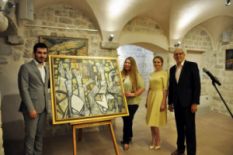Deputy research director of the Institute of Sociology at the National Academy of Sciences of Ukraine (NASU), NASU Associate Member Yevgen Golovakha
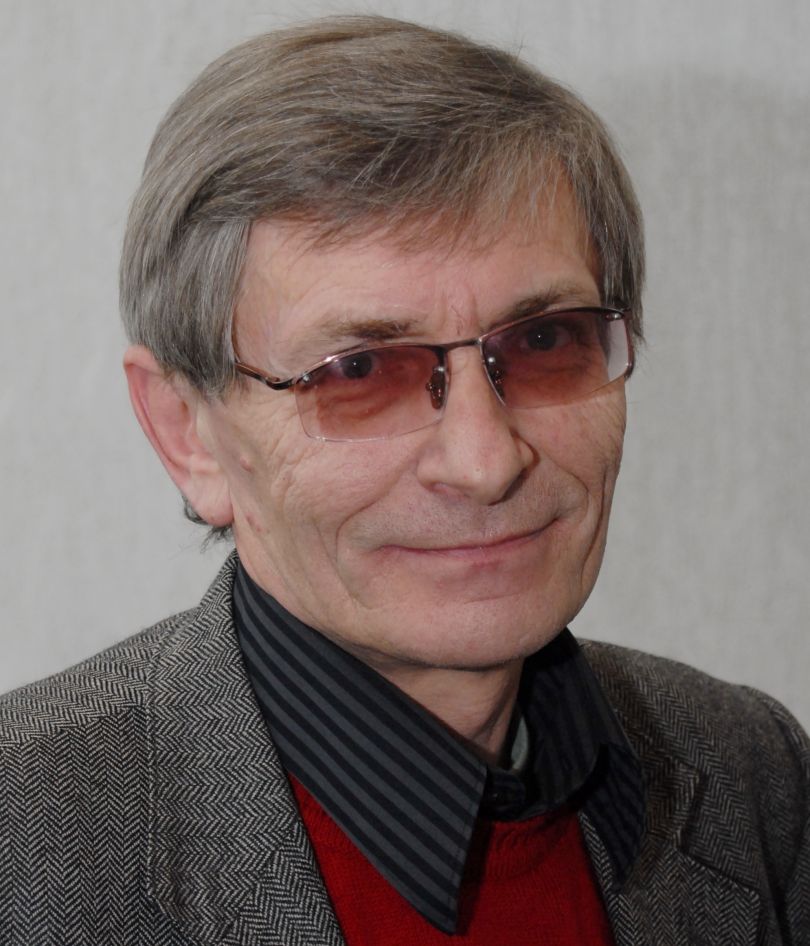 The people are very sensitive to the situation. Monitoring by our Institute showed that protest sentiments among Ukrainians peaked in 2014, which was followed by a brief decline. The recent research we held in September and October – so the data is very up-to-date - showed a slight increase in protest sentiments. It is not catastrophic but, as sociologists say, it is socially meaningful. Obviously, this has to do with the coming elections, which, of course, will be a stressful event for Ukrainians. It is very difficult to compare the age of a person and the age of society and the state. But it is possible!
The people are very sensitive to the situation. Monitoring by our Institute showed that protest sentiments among Ukrainians peaked in 2014, which was followed by a brief decline. The recent research we held in September and October – so the data is very up-to-date - showed a slight increase in protest sentiments. It is not catastrophic but, as sociologists say, it is socially meaningful. Obviously, this has to do with the coming elections, which, of course, will be a stressful event for Ukrainians. It is very difficult to compare the age of a person and the age of society and the state. But it is possible!
Ukrainians are very young, we are gradually growing up with all our new problems, so to speak, we are coming of age. In terms of human age, until 2014, Ukrainians were primary school pupils and everyone taught them how to live... Both Russia and the West did... Now we are teens who already have their own point of view. Sometimes it is very weird and controversial, but it is our own opinion, our vision. Teenagers are trying to become autonomous individuals.
"Ageing" Russia has returned to the past, to its deep past. This old imperial state is back to the 1600s-1800s and is pulling everything along. When ageing, people have a growing feeling that you can live only in the past and that today is worthless. There are several signs Ukraine is growing up.
First, a more or less effective civil society formed five years. Until then, our civil society was nominal: there were many NGOs but they were sponsored by businessmen or international funds.
Second, Ukrainians finally decided which way they should be going: we are going to the West! About 60% of the population leans towards the West. We no longer need cues from "parents". (Smiling.) A small child does not have logical thinking, it is quite syncretic (when a head produces different, even mutually exclusive thoughts). Until 2013, Ukrainians were very "multi-vector", they wanted to be everywhere: with the West and with the East... Whereas teens are already capable of thinking logically...
Third, we have now built a more or less capable army. By the way, most people trust this army. I was surprised to find out that in 2013-2014, we had no more than 6,000 combat-ready servicemen. And we had more generals than in the United States. They were paid money, but why had not they prepared the army?! The Ukrainian armed forces have changed and grown stronger in the conditions of war. This means both the society and the state are growing up.
There are certain signs that we came out of a deep economic crisis. The economic indicators of social well-being of the population over the last year have improved. This is not a fantastic boost but, compared with a fairly prosperous 2012, the figures are slightly higher, which means that the last years have not been in vain. Paternalism is the main factor slowing down Ukraine. There is an eternal hope that someone will solve our problems for us. The situation is improving, especially compared to 1992, albeit very gradually. Paternalism can be measured by different indicators, for example, externality or internality, depending on who you hold responsible for your life (externals rely on their environment, internals on themselves). In Ukraine, we are dominated by externals. In the West, more people undertake responsibility and not only for good work but also for the evil committed...
Paternalism is the result of the fact that we were on the periphery, first, of the Russian, Austro-Hungarian and then Soviet empires. This distorted consciousness has been formed for centuries. It is hard enough to change. However, life has its effect, of course. In general, this is a psychological phenomenon. We need to form a whole new psychology. This is very difficult because we have never lived in conditions where a truly independent consciousness is formed.
Modern young people are very different from the youth of the 1990s, even early 2000s, because those youngsters inherited their parents' traditions in many ways. Back at the time, there were fresh memories of Soviet life, and that life was still being replicated. Young people will flee Ukraine in search of better opportunities. But it is not that fatal. This is a normal development process. It takes decades to change things. Values are transforming very slowly. I think that if Ukraine had not had a war, it would have taken 30 years. But now it is hard to say how much time it may take. Three decades is a minimum period to accomplish some significant changes.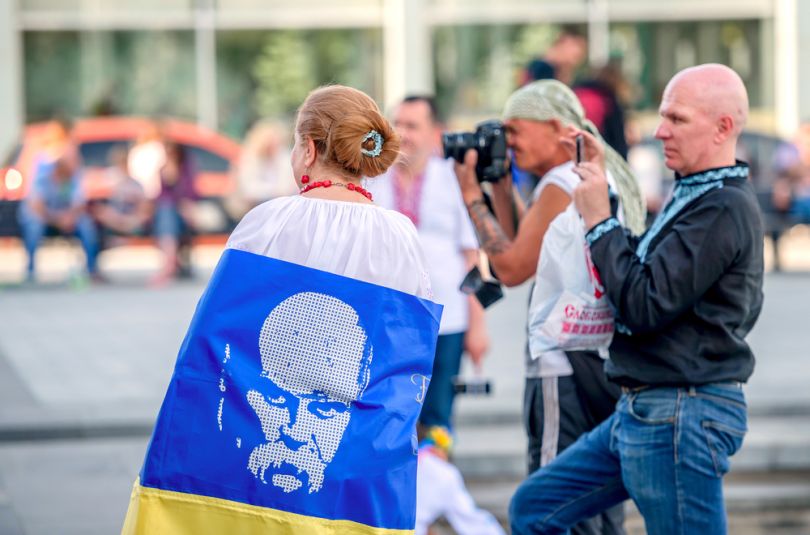 The new youth is creating a new culture. There will be new values that are called European or post-material today: freedom, self-realization, mutual assistance and tolerance. While young people are forming these values in our context, there is a big difference between our modern values and the European ones. If we compare our values with those of Europe or Northern Europe, it would be good if we could at least achieve the value awareness of the most backward states in Europe. It is like day and night so far. In Western and Northern Europe, the value of self-realization prevails over the value of career, that is, a person can achieve self-realization through social activities or hobbies, not necessarily be a leader... In Ukraine, a very important sign of self-realization is career itself, end of story. (Smiles.)
The new youth is creating a new culture. There will be new values that are called European or post-material today: freedom, self-realization, mutual assistance and tolerance. While young people are forming these values in our context, there is a big difference between our modern values and the European ones. If we compare our values with those of Europe or Northern Europe, it would be good if we could at least achieve the value awareness of the most backward states in Europe. It is like day and night so far. In Western and Northern Europe, the value of self-realization prevails over the value of career, that is, a person can achieve self-realization through social activities or hobbies, not necessarily be a leader... In Ukraine, a very important sign of self-realization is career itself, end of story. (Smiles.)
In the early 1990s, we did not do what our neighbors in Eastern and Central Europe did, we did not have genuine reforms. We did not want to, we were afraid of shock therapy, but later got a shock without a therapy, a shock for many decades! I wrote back in the 1990s that I understood the first presidents who were afraid of fundamental changes because they were not sure how they would end up. Poles were not afraid. In any case, Ukraine will take its place in a European context. I have always said that there are three scenarios.
The first one is the fastest, that is if people at the top of hierarchy lead by example how to be Europeans. That is, they will demonstrate and really support the post-material, not feudal-Soviet system of values. However, it is very difficult to believe in this scenario. The bottom-up path of development is very slow, it would be faster if it went from top to bottom. History shows us that the most effective path is for the elite to demonstrate a pattern of behavior to follow when real managers come to power to destroy corrupt schemes instead of creating them.
The second scenario is a very long path of mistakes, which could take many decades, and that is where we are now. This is the scenario when we have to rely on continuous Western control. We will shy away from anything wherever possible... After all, we can see how the processes of Europeanization are going under the pressure of Western colleagues.
The third scenario is disappointing: if we give up on the choice we made a few years ago, everything can go on for centuries ... Ukrainians are Europeans by their psychological type. And through terrible trials, even if it takes 100-200 years, if humanity is still here, we will come to Europe. We cannot even count on Eurasians because we will not be able to adapt to the world where Russia and China form a new social system. We are not like that. We still have sufficient experience of military democracy, that is why we fight and put up resistance. The very experience of military democracy does not allow us to adopt a system where there is one king-emperor and the rest are faithful.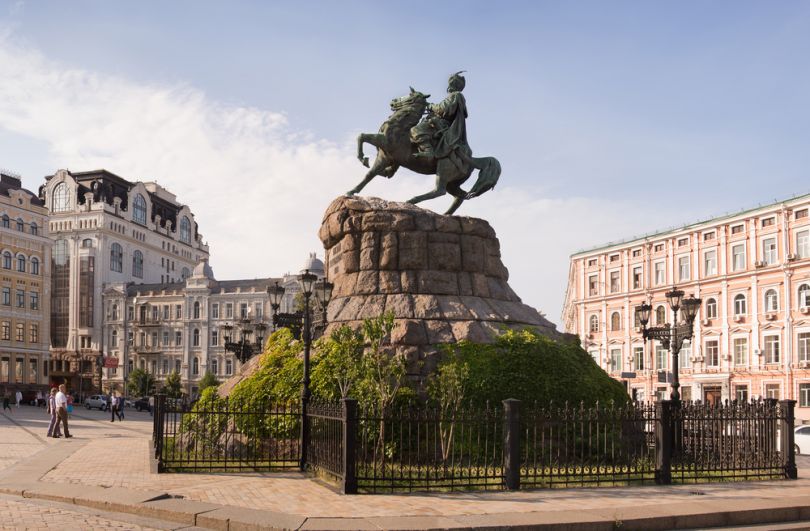 We do not always like our authorities just like we did not always like our hetmans. Only a few managed to hold on for quite some time. These historical skills will not allow us to become part of the Eurasian space, if it is to be formed. And this is a real option. There will be the Western and Eurasian worlds. Who knows what will happen in a hundred years. We will be, so to say, at the intersection of all routes on the border with Mordor (In J. R. R. Tolkien's fictional world of Middle-earth, Mordor is the realm of arch-villain Sauron; also, used as a derogatory name for Russia - Ed.). We will defend our values at the border. What can we do if that is where we are historically and geographically? (Smiles.)
We do not always like our authorities just like we did not always like our hetmans. Only a few managed to hold on for quite some time. These historical skills will not allow us to become part of the Eurasian space, if it is to be formed. And this is a real option. There will be the Western and Eurasian worlds. Who knows what will happen in a hundred years. We will be, so to say, at the intersection of all routes on the border with Mordor (In J. R. R. Tolkien's fictional world of Middle-earth, Mordor is the realm of arch-villain Sauron; also, used as a derogatory name for Russia - Ed.). We will defend our values at the border. What can we do if that is where we are historically and geographically? (Smiles.)
The project of united Europe will endure. Even if some countries leave the EU, it will not be a tragedy. The main thing is to preserve the core of the EU - Northern and Central Europe, where post-material values prevail. It was the inclusion of post-Soviet enclaves that caused the crisis in Europe. It will take a lot of time for them and us to solve this problem. What is ahead for Ukraine in 2019? If we survive the coming year without a massacre and armed protests (and this is a very serious and responsible year for our country), in my opinion, we will make another, albeit small step forward. But nobody can tell you anything in advance. Only an irresponsible person can say something. If we can keep power without blood, without destroying the economy and impoverishing Ukrainians, the year of 2019 will become significant for the self-determination and maturity of the country.
I hope there will not be a certain someone who would want to ruin everything around. However, the worst option would be Russia's military intervention. So, Ukrainians are standing the exam of an awkward age. I hope we will pass this exam with flying colors. The society, in my opinion, is changing in a positive way but nobody can give any guarantees. I would recommend foreigners who live and work in Ukraine to do two things: treat Ukrainians with respect but be critical. Believe me, quite often there is no respect. We must respect people who have stood and are standing such tests. We are talking about the 1990s experience and the recent events when we were left alone against Russia.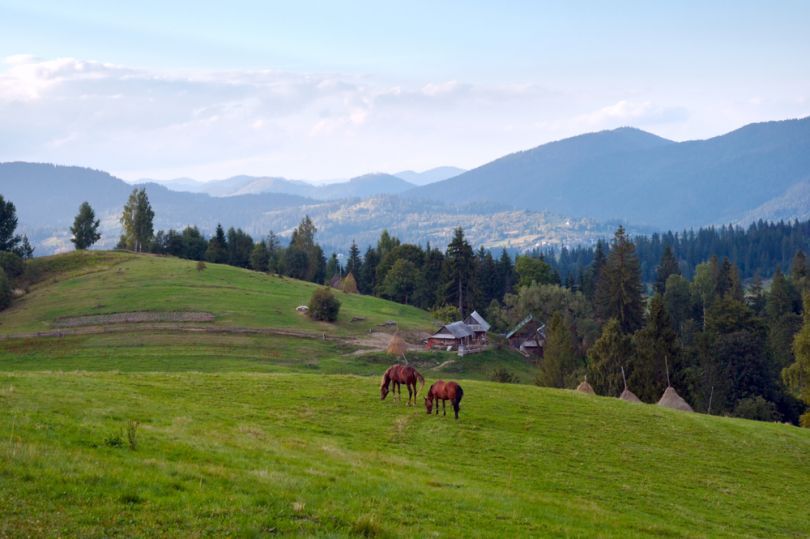 Our experience is very useful for foreigners if they are not indifferent to the fate of their homeland. Ukrainians deserve respect, they have gone through the hardest years of change with dignity, I hope. However, it is necessary to be critical because Ukrainians have come out of a system which, for example, Western Europeans cannot understand. They did not live in the Soviet Union, did not bring up children or grandchildren in this system. Soviet reality amazed the West, and now it is largely being reproduced and will be reproduced for many years.
Our experience is very useful for foreigners if they are not indifferent to the fate of their homeland. Ukrainians deserve respect, they have gone through the hardest years of change with dignity, I hope. However, it is necessary to be critical because Ukrainians have come out of a system which, for example, Western Europeans cannot understand. They did not live in the Soviet Union, did not bring up children or grandchildren in this system. Soviet reality amazed the West, and now it is largely being reproduced and will be reproduced for many years.
This is not about the nation. We are talking about the cultural traditions of the past, which expatriates find very difficult to comprehend. And one, of course, must be critical. Because sometimes it looks like pathology, but it is not. Rather these are the consequences of a distorted culture, which in the new conditions distorts people even more. The shining examples of this can be, first, irresponsibility in money handling, and, second, the traditions of an unhealthy way of life.
One must understand that in the Soviet times, the intelligentsia saw drinking as a way to forget bad things while ordinary people drank in order not to think. By the way, the Slavs did not drink when medieval Europe was tanking up. This "disease" peaked when Ukraine was part of different empires. But here we can also see changes: over 27 years, Ukrainians have notably cut on drinking, especially young people. And on smoking too. What used to be considered significant is no longer. We will gradually join the civilized world.
Photo sources: depositphotos.com. All images belong to their rightful authors.
Interview by Miroslava Makarevich.


